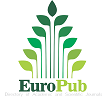Woman…you know what you are
Abstract
From the sexed nature of human beings, much has been said about the dominance of one sex over the other. Faced with this, the terms patriarchy and matriarchy arise not necessarily in that order, such as force, dominance or control over the other.
The historical evidence recognizes the actions of women in public positions within prehistoric society to the point of using the term matriarchy, which fades in the Neolithic with the consolidation of sedentary life, and in the nascent social organization it is the male who exercises authority as head of the family, giving rise to the patriarchy.
It is in the nineteenth century that the first feminist movements were born to later take up the debate on patriarchy whose theorization, from different perspectives, has given rise to different currents of feminism, each with a particular vision of female identity.
Downloads
References
Annunziata, R. (2009). Bachofen y el retorno de las madres. Acta Poética, volumen (30,1), 384-279. Doi: https://doi.org/10.I9I30/iifl.ap
Bachofen,J.J. (1987). El Matriarcado. Una investigación sobre la ginecocracia en el mundo antiguo según su naturaleza religiosa y jurídica. Madrid: Akai
Beauvoire, S. (1999). El segundo sexo
Buenos Aires: Sudamericana
Castilla de Cortazar,Blanca. (24 de abril del 2015).Fundación Educativa Servanda. Obtenido de https://www.youtube.com/watch?v=PQh1uVCtJeA
Engels, F. (2006). El Origen de la Familia de la propiedad privada y del estado. Madrid: Fundación Federico Engels
MARIMAR. (2019,05 de mayo). El mayo francés del 68. Recuperado de https://sobrehistoria.com/el-mayo-frances-del-68/
Márquez, N. y Laje, A. (2016). El libro negro de la nueva izquierda
Buenos Aires: Grupo Unión
Martín-Baró, Ignacio. (1990). Acción e ideología
El Salvador: Editorial UCA
Mensaje a las mujeres. Recuperado de http://www.vatican.va/content/paul-vi/es/speeches/1965/documents/hf_p-vi_spe_19651208_epilogo-concilio-donne.html
Moore, Henrietta L. (2009). Antropología y feminismo
Madrid: Cátedra
Mulieris Dignitaten (1988). Recuperado de http://www.vatican.va/content/john-paul-ii/es/apost_letters/1988/documents/hf_jp-ii_apl_19880815_mulieris-dignitatem.html
Pernoud, R. (1980). La mujer en el tiempo de las Catedrales. Recuperado de https//:www.lectulandia.com
Púñez, N. (2018). Posibilidades para repensar y reescribir la historia: Importancia del hallazgo de La dama de Cao. Horizonte de la ciencia, volumen (8, 14), 163-68. Doi: https://doi.org/10.26490/uncp.horizonteciencia.2018.14.425
The authors retain copyright.
This work is under international license Creative Commons Attribution 4.0.
The articles published by the scientific journal "Notes on Bioethics" of the Universidad Catolica Santo Toribio de Mogrovejo, Chiclayo Peru, can be shared through the international public license Creative Commons Attribution CC BY 4.0
























 LIBRARY USAT
LIBRARY USAT